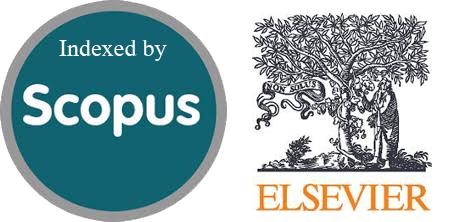The Role of Kisspeptin in Discrimination Between Missed Miscarriage and Intrauterine Viable Pregnancy
DOI:
https://doi.org/10.54133/ajms.v8i2.2012Keywords:
β-hCG, Kisspeptin, Miscarriage, Viable pregnancyAbstract
Background: Missed miscarriage is a common complication, which affects 15% of pregnancies. The loss of a pregnancy is distressing for women and their partners. A biomarker for evaluation of the viability of gestation is kisspeptin because of the role of this marker is the regulation of trophoblast function and placentation. Kisspeptin plays a significant role in implantation and decidualization. Objective: To evaluate the role of serum kisspeptin in discrimination between missed miscarriage and viable intrauterine pregnancy. Methods: A case-control study was conducted in the Department of Obstetrics and Gynecology at Azadi Teaching Hospital, Kirkuk. It included 92 women with singleton pregnancies; they were divided into 2 groups: The case group included 45 pregnant women who presented with missed miscarriage, and the control group included 47 women with viable singleton pregnancy. Tests for kisspeptin level and β-hCG level were done for both groups. Results: Kisspeptin and β-hCG values were significantly lower in miscarriage cases compared to the control group. The optimal kisspeptin level for the discrimination between miscarriage and viable intrauterine pregnancies was 53.3 ng/l. Hence, a kisspeptin level < 53.3 ng/l is a predictor for missed miscarriage. The optimal β-hCG level for the discrimination between miscarriage and viable intrauterine pregnancies was 8642.2 ng/l. The correlation between kisspeptin and β-hCG levels was a significant positive. Conclusions: Kisspeptin and β-hCG levels are more sensitive and specific in predicting early missed miscarriage. They represent non-invasive, early, and excellent predictors of missed miscarriage, which can be used if confirmed by further studies.
Downloads
References
Edmonds DK, (Ed.), Recurrent Miscarriage, In: Dewhurst's Textbook of Obstetrics and Gynaecology, pp. 568-574, 2018. DOI: https://doi.org/10.1002/9781119211457.ch41
Jayasena CN, Abbara A, Izzi-Engbeaya C, Comninos AN, Harvey RA, Gonzalez Maffe J, et al. Reduced levels of plasma kisspeptin during the antenatal booking visit are associated with increased risk of miscarriage. J Clin Endocrinol Metab. 2014;99(12):E2652-2660. doi: 10.1210/jc.2014-1953. DOI: https://doi.org/10.1210/jc.2014-1953
Neilson JP, Gyte GM, Hickey M, Vazquez JC, Dou L. Medical treatments for incomplete miscarriage. Cochrane Database Syst Rev. 2013;(3):CD007223. doi: 10.1002/14651858.CD007223. DOI: https://doi.org/10.1002/14651858.CD007223.pub3
Saxena R, (Ed.), An Evidence-based Clinical Textbook in Obstetrics and Gynecology for MRCOG-2. JP Medical Ltd, 2017. DOI: https://doi.org/10.5005/jp/books/13055
Nasser S, Makhdoom T, Alhubaishi LYA, Elbiss HM. Medical management of first trimester missed miscarriages - A cross-sectional study. Pak J Med Sci. 2024;40(7):1425-1429. doi: 10.12669/pjms.40.7.8751. DOI: https://doi.org/10.12669/pjms.40.7.8751
Yousif OF, Amin KM. Using multiple serum biomarkers in detecting the outcome of threatened miscarriage. Kirkuk J Med Sci. 2020;8(1):149-158. DOI: https://doi.org/10.32894/kjms.2020.169376
Branch DW, Gibson M, Silver RM. Recurrent miscarriage. New Engl J Med. 2010;363(18):1740-1747. doi: 10.1056/NEJMcp1005330. DOI: https://doi.org/10.1056/NEJMcp1005330
Stephenson M, Kutteh W. Evaluation and management of recurrent early pregnancy loss. Clin Obstet Gynecol. 2007;50(1):132-145. doi: 10.1097/GRF.0b013e31802f1c28. DOI: https://doi.org/10.1097/GRF.0b013e31802f1c28
Lee JH, Miele ME, Hicks DJ, Phillips KK, Trent JM, Weissman BE, et al. KiSS-1, a novel human malignant melanoma metastasis-suppressor gene. J Natl Cancer Inst. 1996;88(23):1731-1737. doi: 10.1093/jnci/88.23.1731. DOI: https://doi.org/10.1093/jnci/88.23.1731
Hu KL, Chang HM, Zhao HC, Yu Y, Li R, Qiao J. Potential roles for the kisspeptin/kisspeptin receptor system in implantation and placentation. Hum Reprod Update. 2019;25(3):326-343. doi: 10.1093/humupd/dmy046. DOI: https://doi.org/10.1093/humupd/dmy046
Abbara A, Al-Memar M, Phylactou M, Kyriacou C, Eng PC, Nadir R, et al. Performance of plasma kisspeptin as a biomarker for miscarriage improves with gestational age during the first trimester. Fertil Steril. 2021;116(3):809-819. doi: 10.1016/j.fertnstert.2021.04.031. DOI: https://doi.org/10.1016/j.fertnstert.2021.04.031
Ibrahim RO, Omer SH, Fattah CN. The correlation between hormonal disturbance in PCOS women and serum level of kisspeptin. Int J Endcrinol. 2020;2020:6237141. doi: 10.1155/2020/6237141. DOI: https://doi.org/10.1155/2020/6237141
Sullivan-Pyke C, Haisenleder DJ, Senapati S, Nicolais O, Eisenberg E, Sammel MD, et al. Kisspeptin as a new serum biomarker to discriminate miscarriage from viable intrauterine pregnancy. Fertil Steril. 2018;109(1):137-141. doi: 10.1016/j.fertnstert.2017.09.029. DOI: https://doi.org/10.1016/j.fertnstert.2017.09.029
Tsoutsouki J, Patel B, Comninos AN, Dhillo WS, Abbara A. Kisspeptin in the prediction of pregnancy complications. Front Endocrinol (Lausanne). 2022;13:942664. doi: 10.3389/fendo.2022.942664. DOI: https://doi.org/10.3389/fendo.2022.942664
World Health Organization. Body Mass Index. [Internet]. Available at: https://www.euro.who.int/en/health-topics/disease-prevention/nutrition/a-healthy-lifestyle/body-mass-index-bmi
Giakoumelou S, Wheelhouse N, Cuschieri K, Entrican G, Howie SE, Horne AW. The role of infection in miscarriage. Hum Reprod Update. 2016;22(1):116-133. doi: 10.1093/humupd/dmv041. DOI: https://doi.org/10.1093/humupd/dmv041
Pillai RN, Konje JC, Tincello DG, Potdar N. Role of serum biomarkers in the prediction of outcome in women with threatened miscarriage: a systematic review and diagnostic accuracy meta-analysis. Hum Reprod Update. 2016;22(2):228-139. doi: 10.1093/humupd/dmv054. DOI: https://doi.org/10.1093/humupd/dmv054
Daponte A, Deligeoroglou E, Garas A, Pournaras S, Hadjichristodoulou C, Messinis IE. Activin A and follistatin as biomarkers for ectopic pregnancy and missed abortion. Dis Markers. 2013;35(5):497-503. doi: 10.1155/2013/969473. DOI: https://doi.org/10.1155/2013/969473
Yu H, Liu J, Guo H, Chen C, Han Y, Cui Y. Prognostic value of repeated serum kisspeptin measurements in early first trimester pregnancy: a preliminary study. Reprod Biomed Online. 2019;38(3):465-471. doi: 10.1016/j.rbmo.2018.11.014. DOI: https://doi.org/10.1016/j.rbmo.2018.11.014
Muir AI, Chamberlain L, Elshourbagy NA, Michalovich D, Moore DJ, Calamari A, et al. AXOR12, a novel human G protein-coupled receptor, activated by the peptide KiSS-1. J Biol Chem. 2001;276(31):28969-28975. doi: 10.1074/jbc.M102743200. DOI: https://doi.org/10.1074/jbc.M102743200
Marwah S, Gupta S, Batra NP, Bhasin V, Sarna V, Kaur N. A comparative study to evaluate the efficacy of vaginal vs oral prostaglandin E1 analogue (Misoprostol) in management of first trimester missed abortion. J Clin Diagn Res. 2016;10(5):QC14-18. doi: 10.7860/JCDR/2016/18178.7891. DOI: https://doi.org/10.7860/JCDR/2016/18178.7891
Abd-Alrazzaq MA. The success rate of expectant management in the treatment of 1st trimester missed miscarriage. Karbala J Med. 2016;9(2):2016.
Park DW, Lee SK, Hong SR, Han AR, Kwak-Kim J, Yang KM. Expression of Kisspeptin and its receptor GPR54 in the first trimester trophoblast of women with recurrent pregnancy loss. Am J Reprod Immunol. 2012;67(2):132-139. doi: 10.1111/j.1600-0897.2011.01073.x. DOI: https://doi.org/10.1111/j.1600-0897.2011.01073.x
Mansy AA, Taher E, Abdelrahman M, Shehata MS. CA125, progesterone and β-hCG in prediction of first trimester abortion. Reprod Climat. 2017;32(1):24-30. doi: 10.1016/j.recli.2017.03.003 DOI: https://doi.org/10.1016/j.recli.2017.03.003
Senapati S, Barnhart KT. Biomarkers for ectopic pregnancy and pregnancy of unknown location. Fertil Steril. 2013;99(4):1107-1116. doi: 10.1016/j.fertnstert.2012.11.038. DOI: https://doi.org/10.1016/j.fertnstert.2012.11.038
Romero-Ruiz A, Avendaño MS, Dominguez F, Lozoya T, Molina-Abril H, Sangiao-Alvarellos S, et al. Deregulation of miR-324/KISS1/kisspeptin in early ectopic pregnancy: mechanistic findings with clinical and diagnostic implications. Am J Obstet Gynecol. 2019;220(5):480. doi: 10.1016/j.ajog.2019.01.228. DOI: https://doi.org/10.1016/j.ajog.2019.01.228

Downloads
Published
How to Cite
Issue
Section
License
Copyright (c) 2025 Al-Rafidain Journal of Medical Sciences ( ISSN 2789-3219 )

This work is licensed under a Creative Commons Attribution-NonCommercial-ShareAlike 4.0 International License.
Published by Al-Rafidain University College. This is an open access journal issued under the CC BY-NC-SA 4.0 license (https://creativecommons.org/licenses/by-nc-sa/4.0/).











